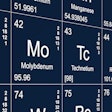The U.S. Food and Drug Administration (FDA) has issued an alert warning of potential dangers from the use of "liberation therapy" to treat chronic cerebrospinal venous insufficiency (CCSVI), which some researchers believe may cause multiple sclerosis (MS).
The experimental procedure, also called the "liberation procedure," uses balloon angioplasty devices or stents to widen narrowed veins in the chest and neck. However, the FDA said it has learned of death, stroke, detachment, and migration of the stents, damage to the treated vein, blood clots, cranial nerve damage, and abdominal bleeding associated with the experimental procedure.
The FDA noted that it has not approved balloon angioplasty devices and stents for use in treating CCSVI.
While some researchers believe that CCSVI may cause MS or may contribute to the progression of the disease by impairing blood drainage from the brain and upper spinal cord, the FDA emphasized that studies exploring a link between MS and CCSVI are inconclusive and that the criteria used to diagnose CCSVI have not been adequately established. The FDA said it's encouraging rigorously conducted, properly targeted research to evaluate the relationship between CCSVI and MS.
The FDA is also notifying physicians and clinical investigators who are planning or conducting clinical trials using medical devices to treat CCSVI that they must comply with FDA regulations for investigational devices. Any procedures conducted are considered to be significant risk clinical studies and require an investigational device exemption (IDE).
In February, the FDA sent a warning letter to a sponsor/investigator who was conducting a clinical study of CCSVI treatment without the necessary approval. The sponsor/investigator voluntarily closed the study, according to the FDA.


















